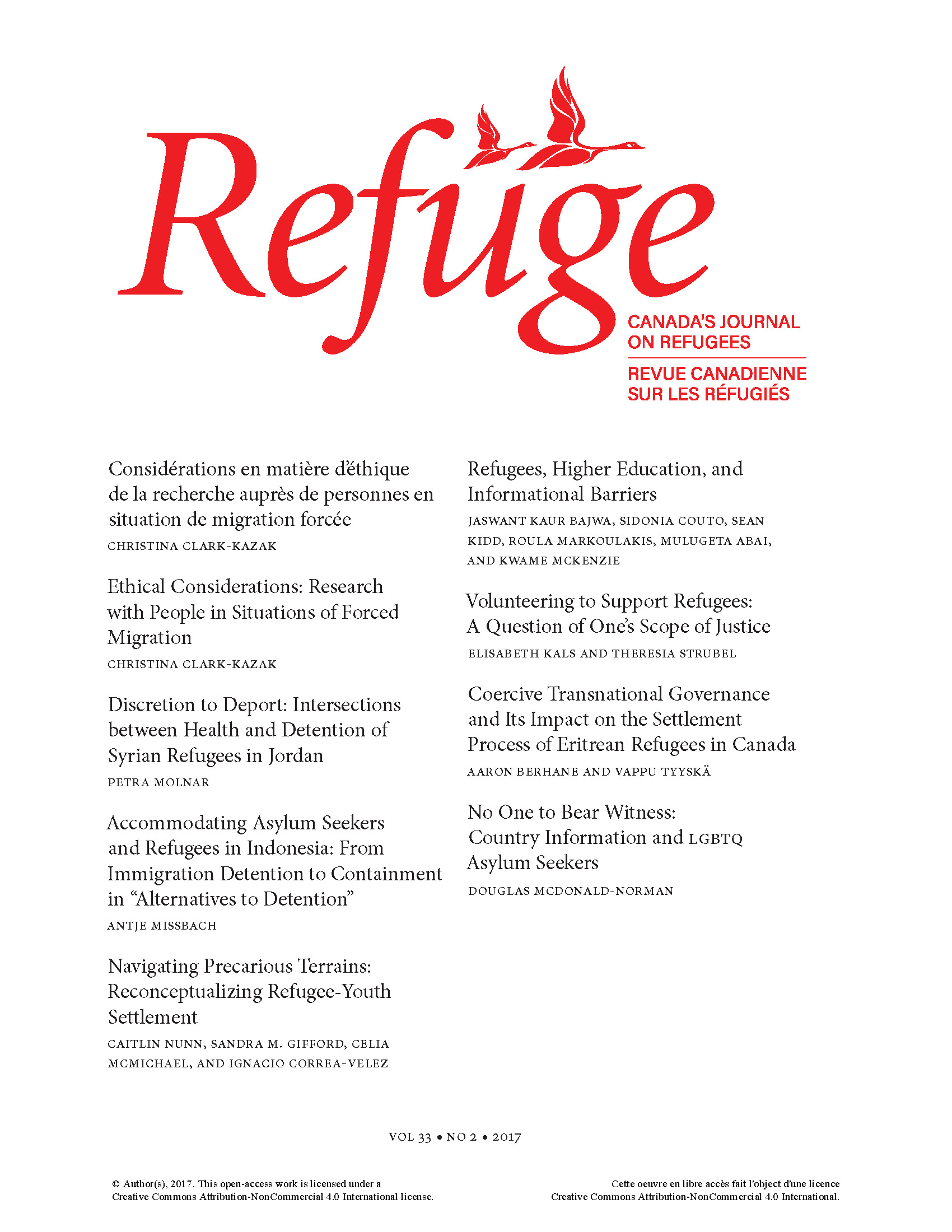Considérations en matière d’éthique de la recherche auprès de personnes en situation de migration forcée
DOI :
https://doi.org/10.7202/1043058arMots-clés :
migration forcée, éthique de la rechercheRésumé
Research can contribute to a better understanding of the experience of people in situations of forced migration and thus support the development of relevant policies and programs; however this research can also constrain and cause prejudices for the respondents [1] looking. In forced migration situations, the stakes are high due to the precarious legal status of respondents, unequal power relations, the wide reach of anti-terrorism laws and the criminalization of migration.In response to this situation, the Canadian Council for Refugees, the Center for Refugee Studies at York University and the Canadian Association for Refugee and Forced Migration Studies (ACERMF) have worked together to develop specific ethical considerations for research with people in forced migration situations. These considerations complement existing ethical principles. They are of interest to all those who participate in the collection of information - in an academic or community setting - and to those who take part in the research. This document presents our guiding principles as well as the ethical concepts of free and informed consent, privacy and cost-benefit analysis.
[1] This document recognizes that power relations are inseparable from the process of facilitating meaningful participation; the term respondent here refers to people who provide information in the context of the research. Some ethics documents use the term human subject .
In this document, the masculine (singular or plural) is used as a representative of all genders, for the sole purpose of lightening the text.
Statistiques
Téléchargements
Publié-e
Comment citer
Numéro
Rubrique
Licence
© Christina Clark-Kazak 2017

Cette œuvre est sous licence Creative Commons Attribution - Pas d'Utilisation Commerciale 4.0 International.
Les auteurs qui publient dans Refuge conservent le droit d’auteur associé à leur œuvre, et octroient au public une licence Creative Commons Attribution - Utilisation non commerciale 4.0 International. La licence permet l’utilisation, la reproduction et l’adaptation du matériel avec attribution par tous moyens et sous tous formats pour des fins non commerciales. Pour des informations générales sur les licences Creative Commons, visitez le site Creative Commons. Pour la licence CC BY-NC 4.0, consultez le résumé lisible par l'homme.







